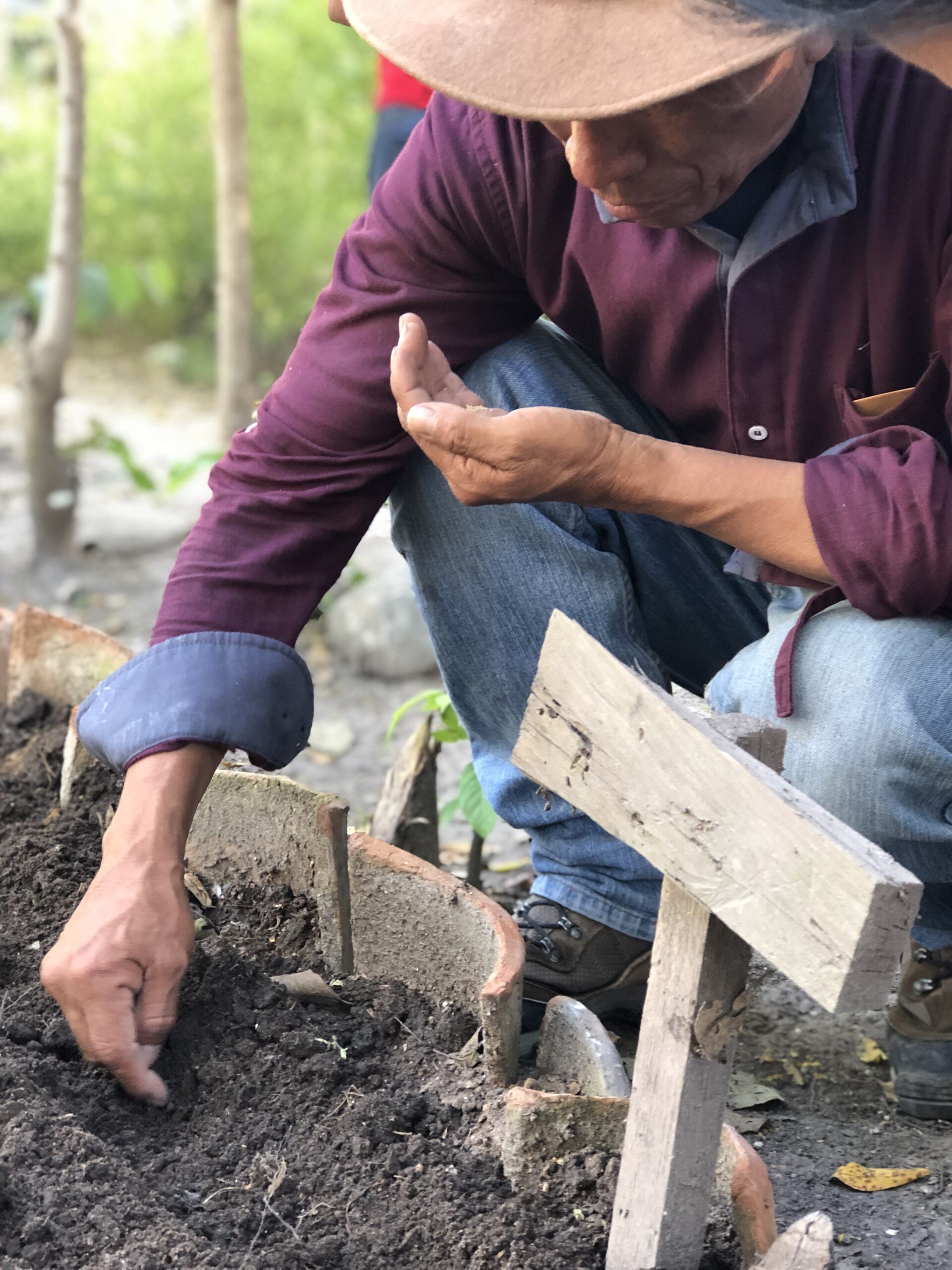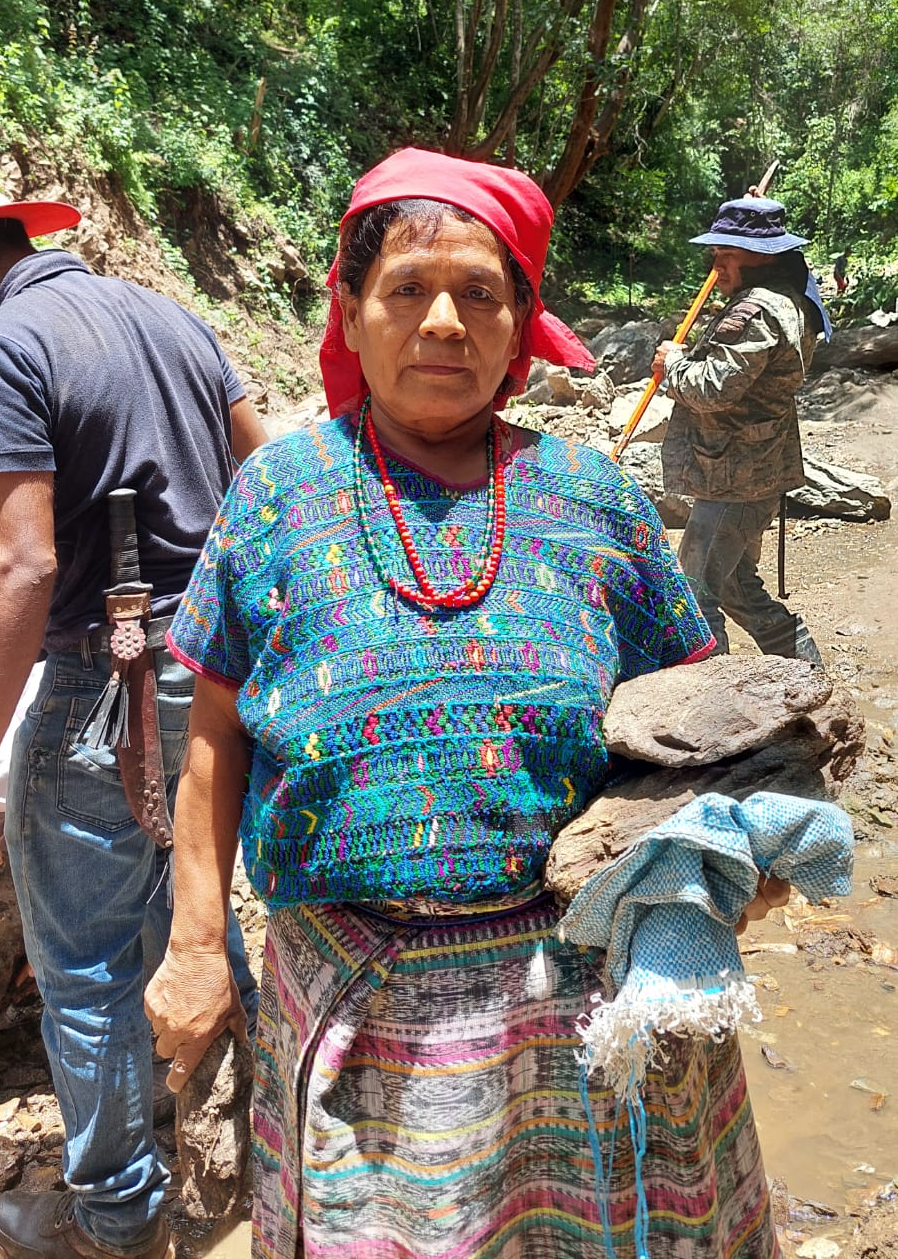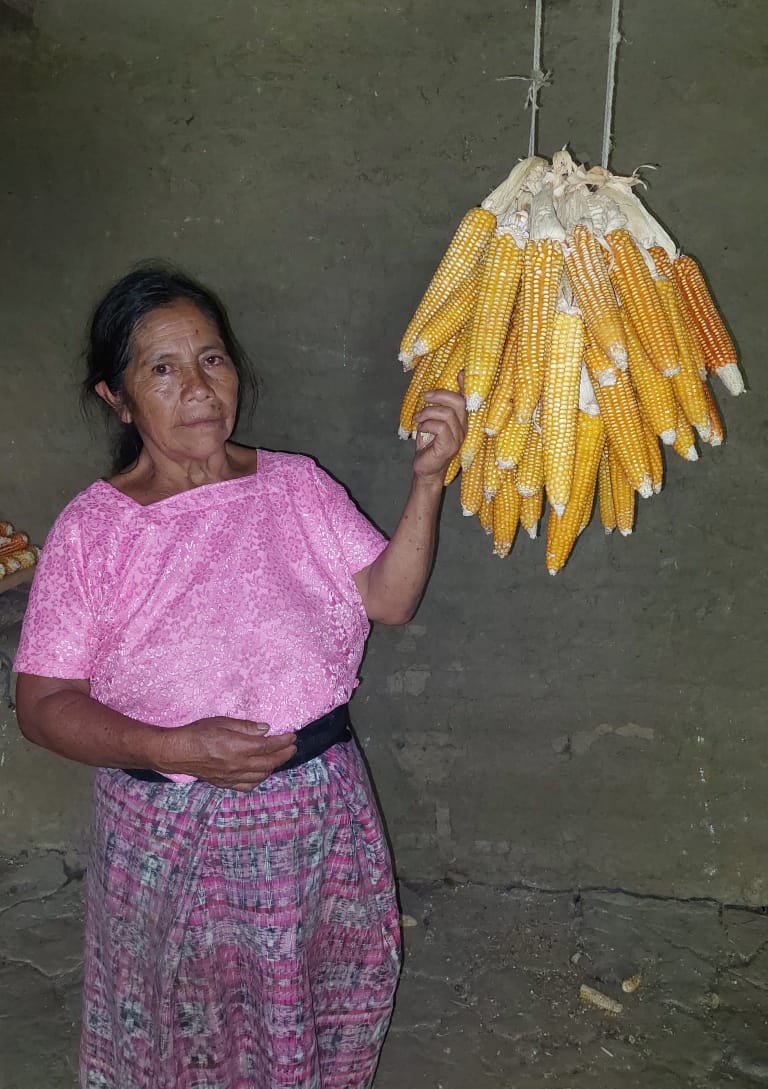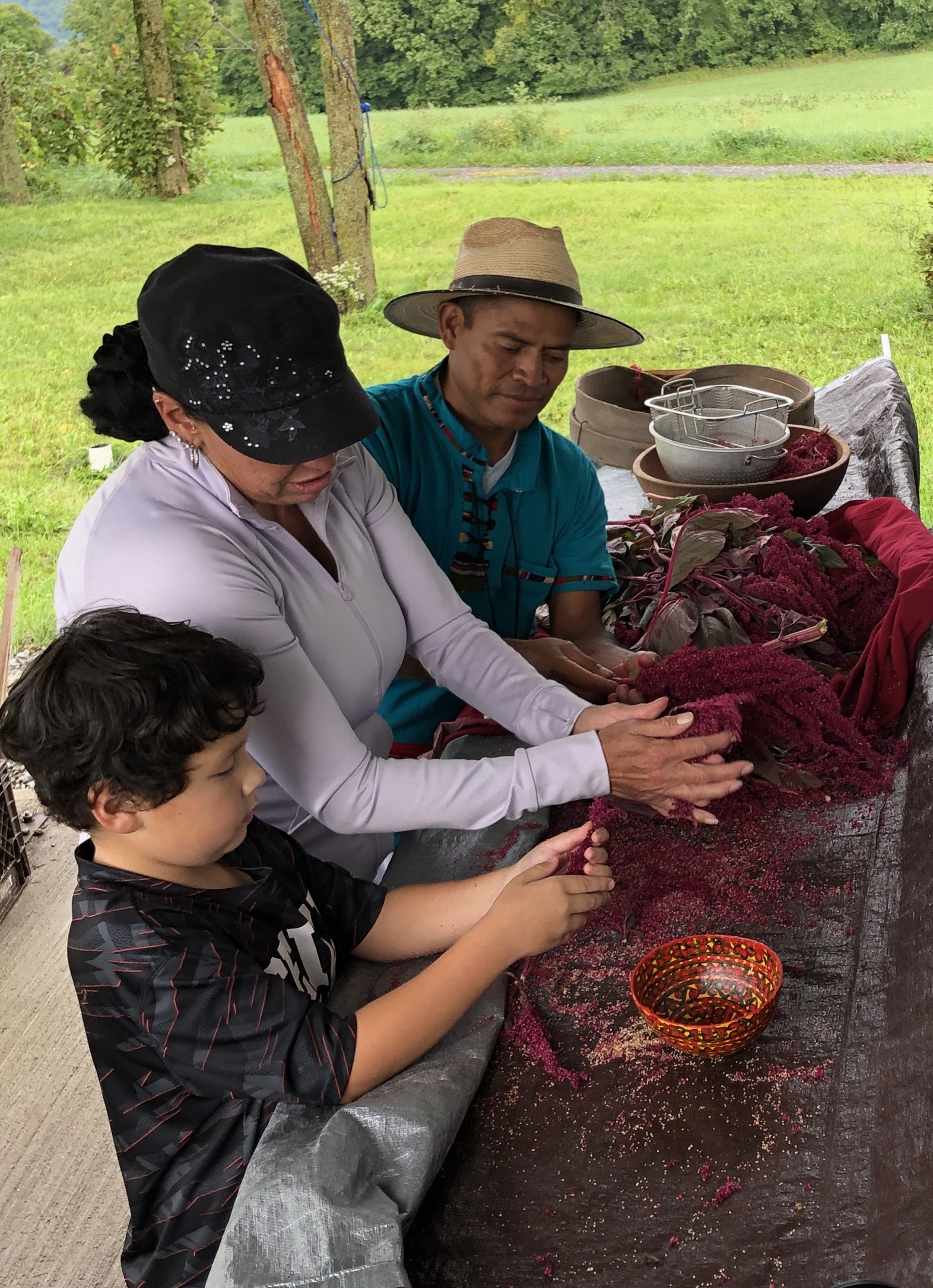Our Partners
Our Partners
We partner with community leaders, initiatives, social movements, and organizations to protect traditional foodways, biodiversity, and Indigenous knowledge.
Qachuu Aloom Association
In 2001, just five years after the signing of the Guatemalan Peace Accords which officially ended a brutal 36-year armed conflict, a group of Maya Achi leaders from the region of Baja Verapaz began organizing.
Led by the vision of Critobal Osorio Sanchez, widows and survivors from a series of horrific massacres in the Rabinal, Baja Verapaz region began to organize and restore their fields, using the Campesino a Campesino, “Farmer to Farmer” method of organizing, planting native seeds and rebuilding their communities in the aftermath of the genocide. With time, more and more people became interested as they saw their neighbors breaking their dependency on outside aid and making some extra money to provide for their families.
The Communities of Chixolop and Las Minas, San Miguel Chicaj
Chixolop and Las Minas are located in the municipality of San Miguel Chicaj, Baja Verapaz. Gradually, this region has become vulnerable to the impacts of climate change. Extreme weather leads to soil erosion, water shortages, crop failure and migration. Women walk long distances to find pools of freshwater in the mountain for drinking and cooking and to wash clothes they dig holes in the dry river bed.
In 2019, with the help of the Chixolop Community Development Council and hundreds of volunteers, we built the very first Sand Dam in Guatemala to store rainwater that’s gravity fed to the houses below. With students from the local school, we established a tree nursery and planted over 2000 trees in the watershed. The Chixolop sand dam, named “Xola” is now delivering water to 500 people.
Applying lessons learned from the first sand dam, we began organizing for the construction of a second sand dam in the nearby community of Las Minas. The process of community organizing and construction was much easier the second time around. Each of the 70 families, roughly 350 people, organized themselves into work parties to build the sand dam and to reforest the watershed. For a project of this size there are often unforeseen expenses that are necessary in order to get the job done right. In Las Minas, the water tank and the tubing to the houses were in rough shape. Fortunately, we had the resources to help the community make those repairs.
Milpa Movement
The Milpa Movement began as a pilot project in 2019, with 12 farmers from the community of El Sauce. Intent on proving that ancestral farming systems are more productive than conventional agriculture, we discovered that the ancestral seeds used in the traditional milpa system (corn, beans and squash) fare better in droughts and are more pest resistant. From 2020 to 2022, the number of farmers growing milpa jumped from 12 to 98 and many of these farmers have doubled the size of their fields. These families from six communities share their seeds, knowledge, and experience to grow the traditional milpa system. To date we’ve recuperated and saved, in community seed banks, 16 varieties of native corn, beans and squash. Each year our partners in the field discover more varieties of ancient seeds that carry, in their genetic memory, the capacity to withstand extreme weather and pests.
Seed Travels
In 2009 we brought farmers from Guatemala to the desert Southwest to share our experiences at the Traditional Native American Farmer’s Association. The deep connections that formed over the years, became a movement of cross cultural exchanges. We now have 12 Seed Travels partners in the Southwest. These are community organizations, like city parks and traditional farming initiatives within First Nations.
Through the Seed Travels initiative, we plant Amaranth and we teach one another about traditional farming, seed saving, and traditional medicine. Together, we share the stories of our seeds; stories of migration, and the stories of our ancestral relationship to the land. In 2022 and 2023 we planted Amaranth with several community farms and gardens in the Haudenosaunee Territory including, the Iroquios White Corn Project, The Cayuga SHARE farm, The Onondaga Nation Farm, The Friends of the Akwesasne Freedom School, The Learning Farm, and Ithaca’s Youth Farm Project.





